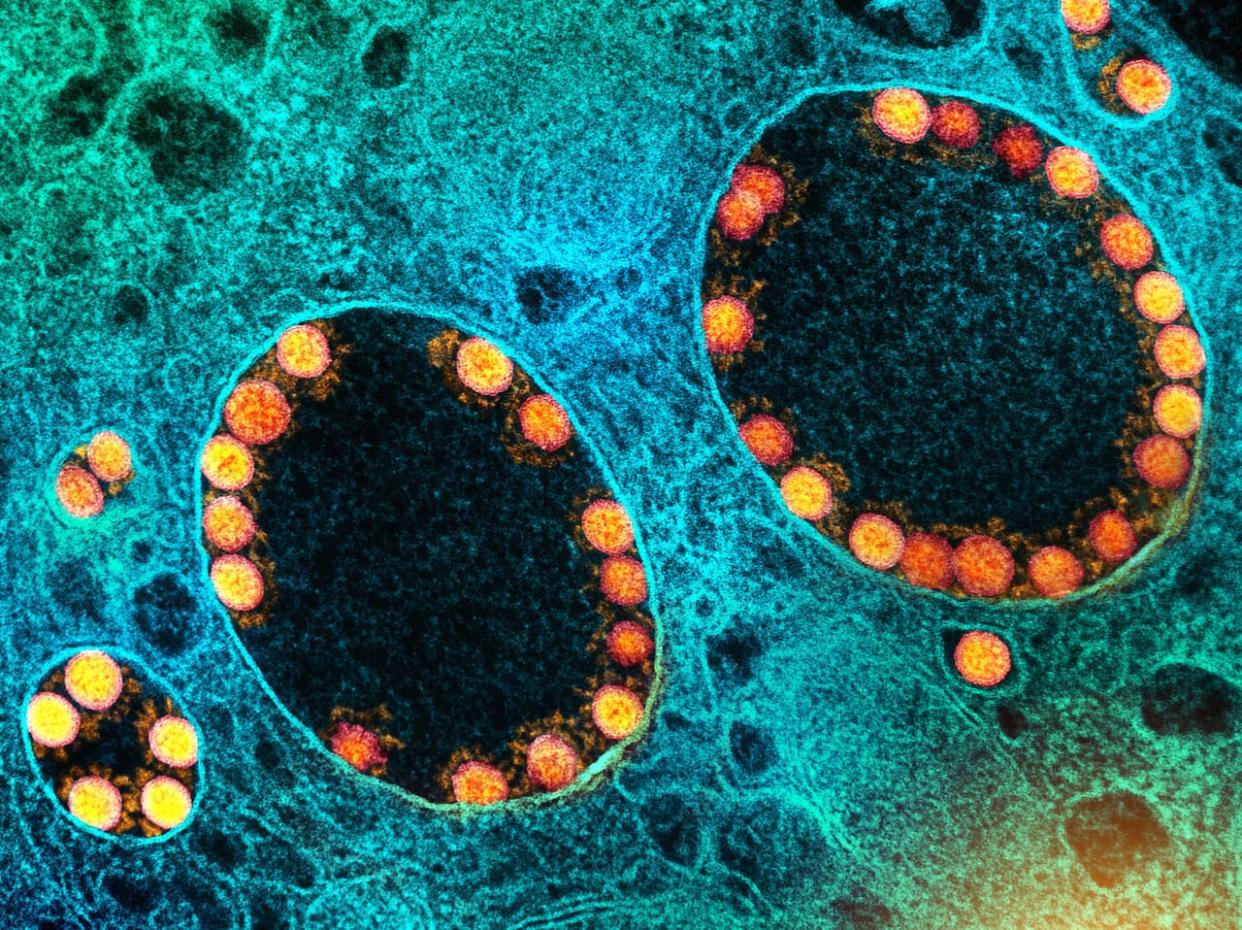2 new COVID-19 variants now dominant in N.B.

Two new COVID-19 variants quickly gaining traction across Canada are already dominant in New Brunswick.
So far, HV.1 and HK.3, related to Omicron EG.5, do not appear to cause more severe disease than other recent variants, said Colin Furness, an infection control epidemiologist and assistant professor at the University of Toronto.
"But it is also a bit too soon to know," he said.
HV.1 and HK.3 were first detected in the province in late August and each represent about 14 per cent of confirmed cases sent for sequencing as of late October, according to the volunteer group Protect Our Province New Brunswick (PoP NB), which aims to create easy-to-access information on COVID risks and protection measures.
PoP NB obtained the data through GISAID — an international non-profit project to share genome data on viruses, as contributed by the Vitalité Health Network's originating lab.
The province no longer provides sequencing breakdowns in the Respiratory Watch report. Public Health will only confirm the presence of a variant upon request, which Department of Health spokesperson Sean Hatchard did.
Still many unknowns with COVID
Three and a half years into the pandemic, "we still don't have a proper understanding of disease severity from variants with which we have lots of experience," said Furness.
"Many of COVID's worst possible effects — vascular damage, brain damage, organ damage — will only be assessable in the long term," he said.
In addition, Furness said researchers know very little about what he described as the "plausible long-term effects," citing male infertility, accelerated dementia and cancer as examples.

Infection control epidemiologist Colin Furness said HV.1 and HK.3 are related to the variant XBB, which is what the latest vaccines are designed to protect against, so he expects they will continue to be effective. (Katarina Kuruc)
"COVID-19 evolution appears to continue favouring (or selecting for) immune escape, but not contagiousness," Furness said.
"That benefits those who take active precautions to limit exposure, and it increases risk for those relying on immunity from past COVID-19 infections."
Since many people are not taking active precautions, he said, HV.1 and HK.3 are "finding a supportive environment."
Aggressive, consistent growth
HV.1 has grown dominant across Canada "very aggressively," while HK.3 is one of only about three other subvariants that have increased even with HV.1 dominating, said Furness.
They are "the only lineage groups demonstrating consistent growth across the country," Health Canada noted in last week's epidemiology update.
As of Nov. 12, HV.1 represents nearly 40 per cent of sequenced cases nationally, while HK.3 accounts for nearly 12 per cent.
'Variants of interest,' says WHO
The World Health Organization (WHO) considers these sublineages, like EG.5, to be variants of interest, which is the second-highest rank after variant of concern.
This means they have genetic changes that are known to affect virus characteristics such as transmissibility and virulence; and a growth advantage over other circulating variants in more than one WHO region with increasing prevalence.
Although HV.1 and HK.3 have a high growth advantage relative to co-circulating variants, "their associated public health risks are classified low at the global level," WHO said in its latest risk evaluation, published last week.
Province's advice remains the same
The Department of Health spokesperson did not respond to questions about whether HV.1 and HK.3 are among the fastest growing variants the province has seen.
Hatchard said in an email that their presence in the province "does not at this time change the recommendations to New Brunswickers on how to protect themselves from COVID-19."
New Brunswickers are advised to "assess and manage their personal risk and to continue using Public Health precautions that can decrease their risk of contracting or spreading COVID-19," Hatchard said.
He noted vaccination remains the best defence against COVID for those aged six months and older, as it "can help reduce the risk of serious complications and hospitalizations."
The province is scheduled to release the latest COVID update Tuesday afternoon.
As of the last Respiratory Watch report, covering Nov. 5 to Nov. 11, COVID-19 activity remained "moderate" and all indicators remained "stable."


